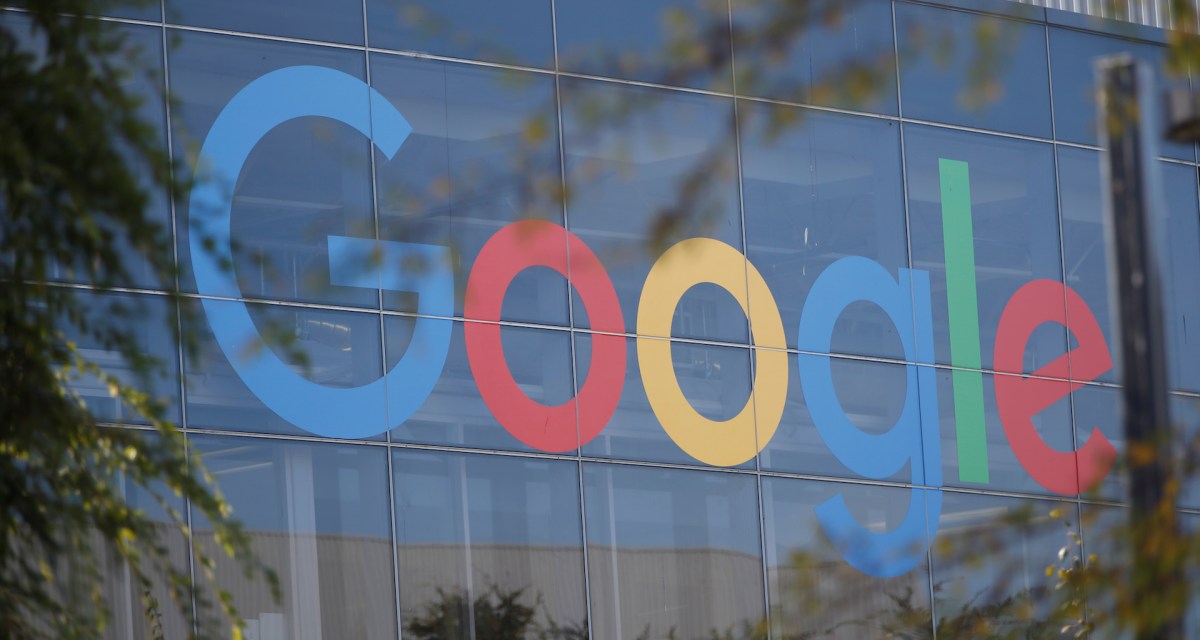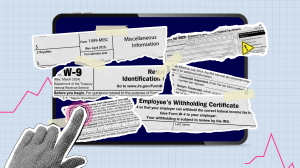New Google Public Sector CEO Karen Dahut shares vision of ‘choice’ in the cloud

Since agencies began moving their applications off-premise and into the cloud more than a decade ago, the federal cloud marketplace has largely been dominated by the same handful of cloud service providers — namely Amazon and Microsoft.
But as that marketplace has matured, federal agencies have increasingly turned to multicloud arrangements, looking to take advantage of offerings from multiple providers rather than locking themselves into the products of a single vendor.
Recognizing this appetite for more choice in the federal cloud marketplace, Google recently spun off its public sector-focused business line from Google Cloud to launch an independent division focused purely on federal, state and local governments and the education sector that can serve as an alternative, multicloud-friendly provider.
Karen Dahut, a federal technology industry veteran who spent a large part of her recent career leading Booz Allen Hamilton’s defense business, was named the first CEO of Google Public Sector in September.
Now, just more than two weeks into the job, Dahut spoke with FedScoop in an exclusive interview about her vision for delivering more of that choice into the federal marketplace and how Google hopes to inject the innovative DNA it’s known for in the commercial world into the federal government.
Editor’s note: This transcript has been edited for clarity and length.
FedScoop: You’ve been in the CEO role now for roughly two weeks. How are you settling in with Google?
Karen Dahut: I will tell you that Google is such an American, iconic brand that the privilege of being able to take the great work that they’ve done for consumers, for commercial entities, for citizens, and apply that at a global level for federal government, state and local governments, educational institutions, is just, honestly, the privilege of a lifetime. You know, the last 20 years, I’ve been with Booz Allen, and I held a lot of different roles there. And there were two things that became very apparent to me in my 30-plus years in this industry. The first is that the advancements in technology have really demanded a different approach in government. And what I mean by that is, most government leaders find that their data is held captive in these very large, vertically integrated, monolithic systems. And it has less utility to them because they can’t integrate it at a more substantial level. The second thing is that most of our leaders in government, either they do have the experience of working with the ease of use of Google products and solutions or their kids have. And they’re demanding that same ease of use. And so when I thought about this role at [Google Public Sector], I thought, wow, it’s the perfect opportunity to really bring the power and magic of Google engineering into the federal government, because they’re ready for that transformation, and to really help them drive those digital transformations.
FS: You’re very early into your tenure as CEO, but what is your vision for this new organization? What’s the biggest thing you want to achieve as this organization is essentially getting off the ground and up-and-running?
KD: Well, it’s a great question. And I’ve given that a lot of thought, obviously. I mean, yes, I just started, but I had been thinking about this for a while. First things first, Google Cloud, and all of the tools that they have available on Google Cloud … it’s just a brilliant platform, right? It is scaled at planet-level scale. It has remarkable tools that it can leverage: Google Earth, Google Maps, these tools that we have become very accustomed to using. So the first principle of strategy is how do you bring not just cloud, but all of those additional incredibly accessible tools to significant federal, state, local challenges. The state of West Virginia is a good example. They switched from a Microsoft product to Google Workspace … primarily to enhance collaboration, because Workspace is truly a collaborative tool born in the cloud, native to the cloud, and it’s less expensive. They saved $11.5 million by making that switch. Another great example is that the [National Oceanic and Atmospheric Administration] worked with Google to bring in Google Analytics and Google Cloud to help understand the potential impacts of climate change and predict those changes. So I share those examples with you because I think the opportunity for Google Public Sector is to listen to our clients, provide and enhance the choices they have available to them, and solution in partnership with them. Because all of these products that I’m talking about are already scaled tools accessible to the world. And our opportunity is to tailor them for specific use cases for our public sector clients.
FS: It’s no secret that the cloud market in the federal government is very competitive. How do you look to differentiate yourself from those companies that have come to dominate the federal cloud space?
KD: Yeah, it’s a reasonable question. And one, I suspect that I’m going to answer a lot. It’s certainly not a surprise to me or not unknown to me that we were a little bit late to the cloud game in government. And I think what we really want to focus on is, first of all, the government really wants choice. They don’t want to be emboldened to a single provider. So that’s important to understand. We also believe in the power of choice and the power of multicloud. Most government organizations are going to choose different clouds for different applications. We want to be one of those that they consider — we want to provide that choice. And in fact, our Anthos tool and solution really allows governments to switch workloads between different clouds, so you’re not wedded to a single cloud. And that is going to be our approach: to understand that government wants choice. We’re one of those providers, we believe we have some very unique capabilities, to provide them that choice, and then solution with them.
FS: You’ve spent much of your career focused on the defense space. How do you plan to use that experience as a guide in this new role, particularly as the Department of Defense has place great focus on moving to the cloud, namely though the Joint Warfighting Cloud Capability (JWCC) contract and others?
KD: I am super proud to be a Navy veteran and having served. I follow in the footsteps of my father who served for 42 years, and my sister who served, so super proud of that service. I think that for defense specifically, there is so much opportunity to bring the power of data analytics and AI to bear on their big challenges like JADC2, Joint All Domain Command and Control. That is a data challenge. I’ve had the opportunity to talk to many people across the department and in the services and they are looking for ways to integrate that data that gives them better perspective and insight into the world and the threats that they face. And I truly believe that using Google’s products and capabilities, whether it’s Cloud, Maps, Earth, or all of those great capabilities in combination to solve for some of the challenges — not just in defense, but in civil agencies and the like — is super exciting. And I really have a fervent belief that once we can unlock the power of the cloud and the power of data and AI from that cloud, the sky’s the limit in terms of what we can do to support government.
FS: Are there other public sector-specific mission sets or problem sets that come to mind that Google’s solutions could be a good fit for?
KD: I think it’s always instructive to go back to some of the work that we’re doing in commercial because there are direct applications In government. So for example, Ford Motor Co. hired us to use data and AI to predict maintenance. You have probably heard this is a significant issue across the military services — how do they maintain their fleet or their tanks or whatever it may be … We believe we have a solution that can help them easily do that. One of the things that [Google Cloud CEO] Thomas [Kurian] said to me as I was assuming this role is: ‘There is a world of opportunity. Our challenge is going to be to focus in on the top areas where we believe we can, with rapidity, really help government.’ And so I think that’s what I’m going to be focused in on: What are the best use cases that we can solution with clients to bring to bear on their challenges?
FS: With security such a major focus in the federal government right now, particularly with zero trust, how does Google Public Sector plan to make that a key element of its work with agencies?
KD: Google pioneered the idea of zero trust and built the first-ever zero-trust architecture. So we are a cloud provider that has security built in from the outset. And that’s really important. We know that our government clients, and the degree of sensitivity of the data that is housed in that cloud, absolutely has to have assurances around security. And so we fundamentally understand that and have always built that into our products. The second thing that’s really exciting is the acquisition of Mandiant. You know, Kevin Mandia, is a force for good. He built an amazing company that is really based upon understanding the threat landscape, providing true, no-kidding incident response capabilities, has built an incredible threat landscape library and is building a security-as-a-service platform within Google Cloud’s architecture. So the combination of all of those components of security will beautifully serve, I think, all aspects of government, but more importantly, ensure citizens that may be using that cloud or enterprises within government that are using that cloud, that their data, their information is secure.






